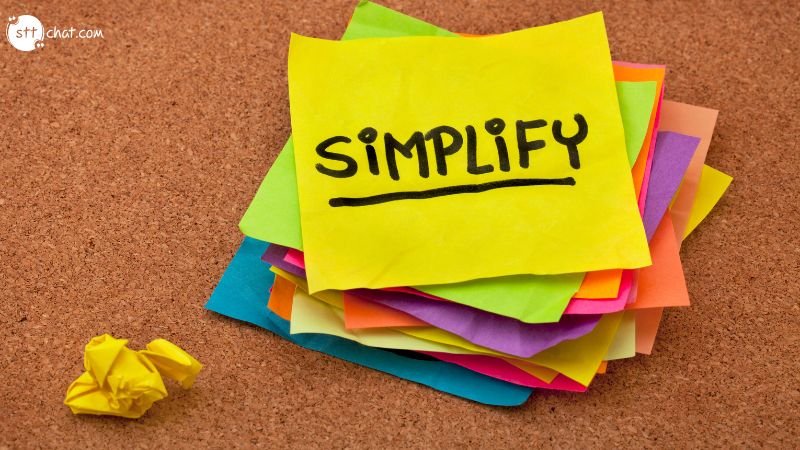Eckhart Tolle, a renowned spiritual teacher, offers profound insights into the nature of time and consciousness with his quote, “The past has no power over the present moment.” This statement encourages us to break free from the shackles of past experiences and embrace the present as a gateway to peace and self-realization. By examining this quote in depth, we can uncover the transformative power of living in the present moment and understand how it can lead to a more fulfilling and harmonious life.
1. The Illusion of Time
1.1 Understanding the Concept of Time
Time is a human construct that allows us to organize our experiences into a linear sequence of events. It is divided into the past, present, and future, with each segment serving a specific purpose in our lives. While time is a useful tool for navigating the practical aspects of life, it can also become a source of suffering when we become overly attached to the past or anxious about the future.
Eckhart Tolle’s quote invites us to question the nature of time and recognize that it is ultimately an illusion. The past and future exist only in our minds, while the present moment is the only reality we ever truly experience. By acknowledging the illusory nature of time, we can begin to let go of past burdens and future worries, allowing us to fully embrace the present.
1.2 The Burden of the Past
The past often holds significant influence over our thoughts, emotions, and actions. We may carry the weight of past mistakes, regrets, traumas, or missed opportunities, allowing them to shape our identity and dictate our decisions. This attachment to the past can lead to a cycle of rumination and suffering, preventing us from living fully in the present.
Tolle’s quote reminds us that the past only has power over us if we allow it. By clinging to past experiences, we give them the ability to overshadow our present reality and limit our potential for growth and happiness. The key to liberation lies in recognizing that the past is no longer real and that its power over us is an illusion we can choose to dissolve.
2. Embracing the Present Moment
2.1 The Power of Now
The present moment is the only point of access to true reality. It is the space where life unfolds and where we have the power to make conscious choices and create meaningful experiences. By grounding ourselves in the present, we open ourselves to the richness and beauty of life as it is, rather than being trapped in the illusions of past and future.
Tolle’s teachings emphasize the importance of being fully present and attentive to the here and now. By cultivating mindfulness and awareness, we can free ourselves from the mental chatter that distracts us from the present moment and gain clarity and insight into our true nature.
2.2 Letting Go of Past Attachments
Letting go of the past does not mean denying or suppressing our experiences. Instead, it involves acknowledging and accepting them without allowing them to define us. This process requires self-compassion and forgiveness, both of ourselves and others, as we release the emotional charge associated with past events.
By letting go of past attachments, we create space for new possibilities and experiences. We become open to change and transformation, allowing us to grow and evolve in alignment with our true purpose and potential.

The present moment is the only point of access to true reality. Source: Internet
3. Practical Steps to Live in the Present
Living in the present moment is a practice that requires conscious effort and commitment. Here are some practical steps to help you embrace the power of now:
3.1 Practice Mindfulness
Mindfulness is the practice of paying attention to the present moment with openness and curiosity. It involves observing our thoughts, emotions, and sensations without judgment or attachment.
Engage in mindfulness exercises, such as meditation, deep breathing, or mindful walking, to cultivate awareness and presence. These practices can help quiet the mind and anchor you in the present moment.
3.2 Release Past Regrets
Reflect on any regrets or unresolved issues from the past that may be holding you back. Acknowledge the lessons learned from these experiences and express gratitude for the growth they have facilitated.
Consider journaling or speaking with a trusted friend or therapist to process and release any lingering emotions associated with past events. Letting go of regrets frees you to focus on the present and create a future aligned with your values and aspirations.
3.3 Focus on the Here and Now
Bring your attention to the present moment by engaging fully in whatever you are doing. Whether it’s savoring a meal, listening to music, or having a conversation, immerse yourself in the experience and notice the details.
By focusing on the here and now, you cultivate a sense of presence and appreciation for the richness of life. This practice can enhance your overall well-being and deepen your connection with yourself and others.
3.4 Practice Self-Compassion
Be gentle and compassionate with yourself as you navigate the journey of letting go of the past. Recognize that it is a process that takes time and patience, and it’s okay to experience setbacks along the way.
Treat yourself with kindness and understanding, acknowledging that you are doing your best with the resources available to you. Self-compassion can help you build resilience and confidence as you embrace the present moment.
3.5 Set Intentions for the Future
While living in the present is essential, it’s also important to set intentions and goals for the future. These intentions should be aligned with your values and aspirations, guiding you toward a life of purpose and fulfillment.
Set realistic and achievable goals that inspire you to take positive action in the present. By focusing on the steps you can take today, you can create a future that reflects your true desires and potential.

Living in the present moment is a practice that requires conscious effort and commitment. Source: Internet
Conclusion
Eckhart Tolle’s quote, “The past has no power over the present moment,” offers a profound insight into the nature of time and consciousness. By releasing the grip of the past and embracing the present moment, we can liberate ourselves from the cycle of suffering and open ourselves to the transformative power of now.
In a world where distractions and pressures often pull us away from the present, Tolle’s words serve as a reminder to anchor ourselves in the reality of the here and now. By practicing mindfulness, letting go of past attachments, and focusing on the present, we can cultivate a life of peace, joy, and fulfillment.
Let us remember that the past is not a prison, but a teacher that guides us toward a deeper understanding of ourselves and the world around us. By embracing the present moment with openness and acceptance, we unlock the potential for growth, healing, and transformation, allowing us to live fully and authentically in alignment with our true nature.






